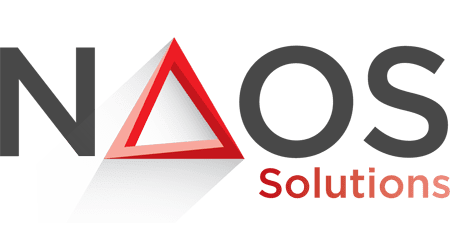In the business world, choosing the right business partners may be the secret sauce to staying ahead of the constant changes – in addition to the right strategy! That’s especially true for HR functions, where the traditional view of outsourcing for cost-saving has evolved into something much more strategic.

But turning your HR outsourcing provider into a critical player in your business’s success isn’t easy! This isn’t about ticking boxes or cutting costs; it’s about aligning your outsourced HR functions with your big-picture goals to drive growth, innovation, and resilience.
Join us as we dive into why your HRO provider should be more than a vendor – they should be your strategic business partner. From enhancing talent management to navigating the complexities of legal compliance and beyond, we’re here to show you how this partnership can become a game-changer for your business. Ready to see your HR operations in a new light? Let’s get started.
The Evolution of HR Outsourcing Until Becoming A Strategic Business Partner
Historically, HR outsourcing was viewed primarily as a cost-saving measure. Companies would outsource routine, administrative HR tasks to focus their in-house efforts on strategic initiatives. However, this perspective has dramatically shifted. Today, HRO providers are seen as external vendors and strategic business partners.
Reason 1: Alignment with Business Objectives
One of the primary reasons to consider HRO providers as strategic business partners is their ability to align their services with your company’s overarching business goals. This alignment ensures that both parties pull in the same direction, fostering a relationship beyond mere transactional interactions.

Example
Imagine a retail company aiming to expand its online presence while maintaining its brick-and-mortar stores’ performance. An HRO provider could tailor its recruitment and training services to support this dual-focus strategy, identifying and developing talent skilled in e-commerce and traditional retail. This strategic alignment ensures that the HR function directly supports the company’s expansion goals, facilitating a seamless growth transition.
Reason 2: Access to Expertise and Innovation
The landscape of HR is complex and constantly evolving, with new challenges and innovations arising rapidly. HRO providers specialize in HR, offering a depth of knowledge and a breadth of experience that can be hard to match internally.
They are at the forefront of HR technology, best practices, and legal compliance, allowing them to bring innovative solutions. This access to expertise means your business can benefit from cutting-edge HR solutions without investing heavily in research or training.
Example
Consider a tech startup that’s rapidly scaling. An HRO provider, with its finger on the pulse of the latest in HR tech and talent management trends, introduces an AI-driven recruitment tool. This tool not only speeds up the hiring process but also improves the quality of hires by matching candidates to the company culture and required skill sets more accurately.
This access to innovative solutions allows the startup to meet its aggressive growth targets by attracting and retaining top talent in a competitive market.
Reason 3: Enhanced Talent Management
Strategic partnerships with HRO providers significantly enhance talent management processes, covering talent acquisition, development, and retention. These providers leverage their expertise and resources to build a comprehensive talent management strategy that aligns with your business goals and culture.

Example
A burgeoning fintech company faces the challenge of attracting top talent in a highly competitive market and ensuring their rapid development and long-term retention. An HRO provider steps in to overhaul the company’s talent management approach. They implement a cutting-edge applicant tracking system (ATS) to streamline recruitment processes and introduce a personalized employee development program.
This program includes mentorship, continuous learning opportunities, and clear career progression paths tailored to individual employee goals and the company’s needs. As a result, the fintech company not only sees a significant uptick in high-caliber applicants but also reports a marked improvement in employee satisfaction and retention rates, underpinning its growth with a stable, engaged workforce.
Reason 4: Cost Efficiency and Flexibility
Partnering with an HRO provider can lead to substantial cost savings and enhanced flexibility in managing HR operations. Organizations can avoid the significant expenses associated with recruiting, hiring, and training HR staff, not to mention the costs of maintaining up-to-date HR technology and systems.

Example
A manufacturing company with seasonal production peaks and troughs struggled with the rigidity of its HR operations and high costs. Transitioning to an HRO provider, the company could switch from a fixed HR cost structure to a variable one, paying for services only as needed.
During peak production periods, the HRO provider swiftly scaled up recruitment and training operations to meet the increased demand for skilled labor. In slower periods, the company scaled back these services, avoiding the costs of maintaining an oversized in-house HR team. This flexibility allowed the company to manage its HR expenses more efficiently, positively impacting its bottom line.
Reason 5: Legal Compliance
The legal compliance landscape in HR is notoriously complex, marked by constant changes in labor laws, regulations, and standards. Egypt and the MENA region are no exception. Navigating this landscape requires expertise and vigilance that can be burdensome for many businesses, especially those operating across multiple jurisdictions.
Example
Consider the case of a multinational corporation expanding its operations into new countries. Each country has its labor laws and regulations, which can be a minefield for companies unfamiliar with the local legal landscape.
By partnering with a local HRO provider, the corporation can ensure that its HR policies and procedures comply with national laws and are optimized to protect the company from potential legal risks. For instance, when the company was about to launch operations in a country with stringent data protection laws for employees, the HRO provider stepped in to revise the company’s data handling and privacy policies, thereby averting potential compliance issues.
Reason 6: Focusing on Core Business Activities
In today’s highly competitive business environment, the ability to concentrate on core activities—those that directly contribute to revenue and growth—is crucial. Partnering with an HRO provider enables businesses to outsource non-core HR functions, such as payroll processing, benefits administration, and employee onboarding. This frees internal resources to focus on strategic initiatives that drive business success.

Example
A fast-growing retailer in the clothing sector found its HR team overwhelmed by the day-to-day administrative tasks, leaving little time for strategic activities such as talent development and strategic planning. By outsourcing these administrative HR functions to an HRO provider, the startup’s HR team could focus on developing a strategic HR framework that aligns with the company’s growth objectives.
This included initiatives like crafting a comprehensive talent acquisition strategy to attract top tech talent and implementing a leadership development program. As a result, the company improved its operational efficiency and strengthened its competitive edge in its industry.
Reason 7: Scalability and Adaptability
In the fast-paced business world, the ability to scale and adapt HR operations in response to organizational growth, downsizing, or other changes is invaluable. HRO providers are perfectly positioned to offer scalable solutions that can adjust to the evolving needs of a business, ensuring that HR support is always in line with current requirements.
Example
A small but rapidly expanding e-commerce company faced the challenge of scaling its workforce to handle seasonal sales surges without committing to a permanent increase in HR overhead. An HRO provider offered the perfect solution by implementing a scalable recruitment and temporary staffing model that could be dialed up or down based on the company’s real-time needs.
This adaptability allowed the company to manage its workforce during peak and off-peak seasons efficiently, optimizing costs and ensuring that customer service levels remained high.
Reason 8: Data-Driven Decision Making
The importance of making data-based decisions cannot be overstated in today’s digital age.HRO providers leverage advanced analytics and HR technologies to gather, analyze, and interpret vast amounts of HR data, enabling businesses to make informed decisions based on empirical evidence rather than intuition.

Example
An established manufacturing firm struggled with high employee turnover rates but couldn’t pinpoint the underlying causes. Partnering with an HRO provider, they leveraged advanced HR analytics to analyze patterns and trends in employee exit interviews, performance reviews, and engagement surveys.
The insights gained revealed critical areas for improvement, such as career development opportunities and work-life balance initiatives.
Armed with this data, the firm implemented targeted strategies that significantly reduced turnover rates and increased employee satisfaction. This approach addressed the immediate retention issue and positioned the company as an employer of choice in its industry.
Reason 9: Strengthened Business Resilience
In today’s unpredictable business environment, resilience is vital to survival and success. HRO providers are crucial in bolstering an organization’s ability to withstand and quickly recover from disruptions. This resilience is achieved through strategic risk management, where businesses are prepared to adapt to unforeseen changes and external pressures.
According to a recent survey conducted by McKinsey across various advanced industries, more than 60% have taken proactive measures to enhance their decision-making abilities and organizational agility in the short term.
Example
Imagine a multinational corporation that, during a global supply chain disruption, leveraged its HRO provider’s expertise to reconfigure its workforce rapidly. The company maintained operational flexibility and agility by implementing decentralized decision-making and empowering autonomous teams.
This approach allowed it to navigate the crisis more effectively than its competitors, minimizing downtime and financial losses. The HRO provider’s role in facilitating swift, adaptive strategies proved invaluable in enhancing the corporation’s overall resilience.
Reason 10: Long-Term Strategic Planning
Long-term strategic planning in HR is not about just filling current vacancies. It’s about forecasting future workforce needs and trends.
Organizations need to invest in acquiring the skills that will be in demand. This involves mapping the roles to fill and identifying the required skill profile. Then, hiring and training should be used to acquire the necessary talent most efficiently.
HRO providers contribute significantly to this planning by offering insights and data analysis that predict future HR challenges and opportunities.
Example
A healthcare provider facing a future shortage of specialized nurses partners with an HRO provider to develop a long-term strategic HR plan. Together, they identify upcoming trends in healthcare, such as an increased demand for telehealth services, and begin cultivating a pipeline of talent specifically trained in these areas.
This proactive approach ensures the healthcare provider remains ahead of industry shifts, securing its position as a leader in innovative patient care.
CONCLUSION
HRO providers are now vital strategic business partners, offering benefits such as aligning HR strategies with business objectives, enhancing talent management, and improving cost efficiency and flexibility. They also contribute to strengthening business resilience and facilitating long-term strategic planning.
Given these insights, it’s time for businesses to reassess their current HR outsourcing strategies. By embracing a partnership approach with HRO providers, organizations can navigate the present challenges more effectively and position themselves for future success.
Don’t let your HR strategy become stagnant. Reevaluate your approach to HR outsourcing and consider how a strategic partnership with an HRO provider like NAOS Talents can elevate your business. The benefits are clear: enhanced resilience, strategic foresight, and a more substantial alignment with your business’s core objectives. Contact us and make the move towards a more agile and strategic HR function today.

